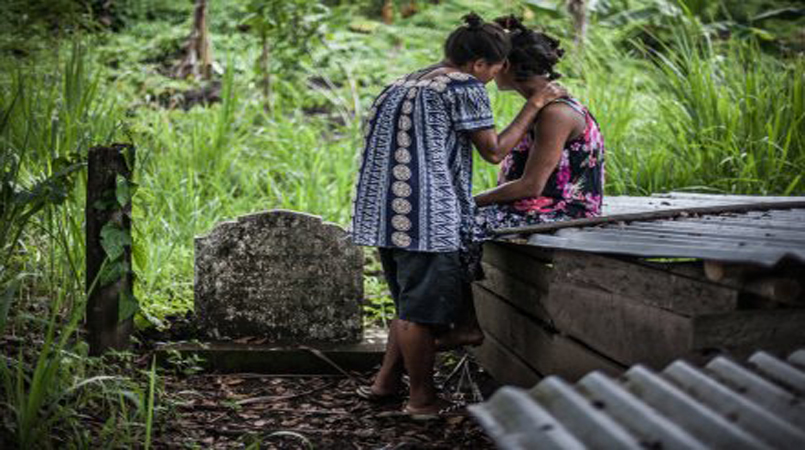
More than 60 per cent of women and girls surveyed in the Pacific Islands have experienced violence by an intimate partner or family member, says a report released last night.
But 12 extra Pacific Island women every day have received help from crisis support services in the three years since Australia set up its $320 million, 10-year program to help improve the lives of women in the region.
The Turnbull government is aggressively pursuing the program, which was launched by then prime minister Julia Gillard at the Pacific Islands Forum summit in the Cook Islands in 2012.
In Fiji last night, Minister for International Development and the Pacific Steven Ciobo delivered a report on progress in the first three years.
The biggest challenge, and thus the biggest investment, had been “addressing violence against women”, Ciobo said.
The report says “women in the Pacific face among the highest levels of violence in the world”.
About 13,000 women have used crisis support services made possible through the program, including counselling, health and legal support.
Ciobo cited the Samoa Victim Support Group, which involves more than 400 village representatives in 166 villages in a community alert system using mobile phones.
The report says “the Pacific has the lowest levels of women in parliaments in the world”. As of June, the world average of all elected members was 22.2 per cent women and 77.8 per cent men. However, the percentage of women in the 14 Pacific parliaments, excluding Australia and New Zealand, stood at 5.7 per cent.
But the report says “although progress has been slow, there are some signs of change. For example, quotas have been used successfully in the region to increase women’s representation at the sub-national level” in Tuvalu, Vanuatu, Bougainville — which has autonomous government within Papua New Guinea — and Samoa.
And Samoa recently became the first country in the Pacific to legislate reserved seats for women — 10 per cent.
Ciobo is visiting several island countries with four Australian women MPs.
Foreign Minister Julie Bishop says in the report that “when meeting with women and women’s groups during visits to the Pacific,I have heard remarkable stories of bravery, determination and strength”.
Fiame Naomi Mata’afa, Samoa’s Justice Minister, says the Pacific Women program “identifies the values and attitudes of men and women as significant barriers to gender equality in the Pacific”.
“Women’s lack of belief in themselves limits both what they choose to do and what they expect of others. This is most starkly demonstrated in the health and family surveys now undertaken in most Pacific countries, which document that both women and men accept the high levels of violence against women,” she says.
She adds: “The practice of physically disciplining children at home and at school also means that children often learn that physical violence is the normal way of resolving problems.”
And community perceptions that women have lower status than men are often reinforced by legal and policy barriers which deny women access to land and other assets, deny them employment protection, and tolerate unequal marriage ages which put young girls at risk of early marriage.
But Mata’afa says: “We have already seen major change in the Pacific. Ten new family protection laws have been passed over the last few years and two more are being drafted.
“I know that many women in parliaments don’t support quotas, but I think temporary special measures are an important step. If something isn’t happening we have to make it happen.”
